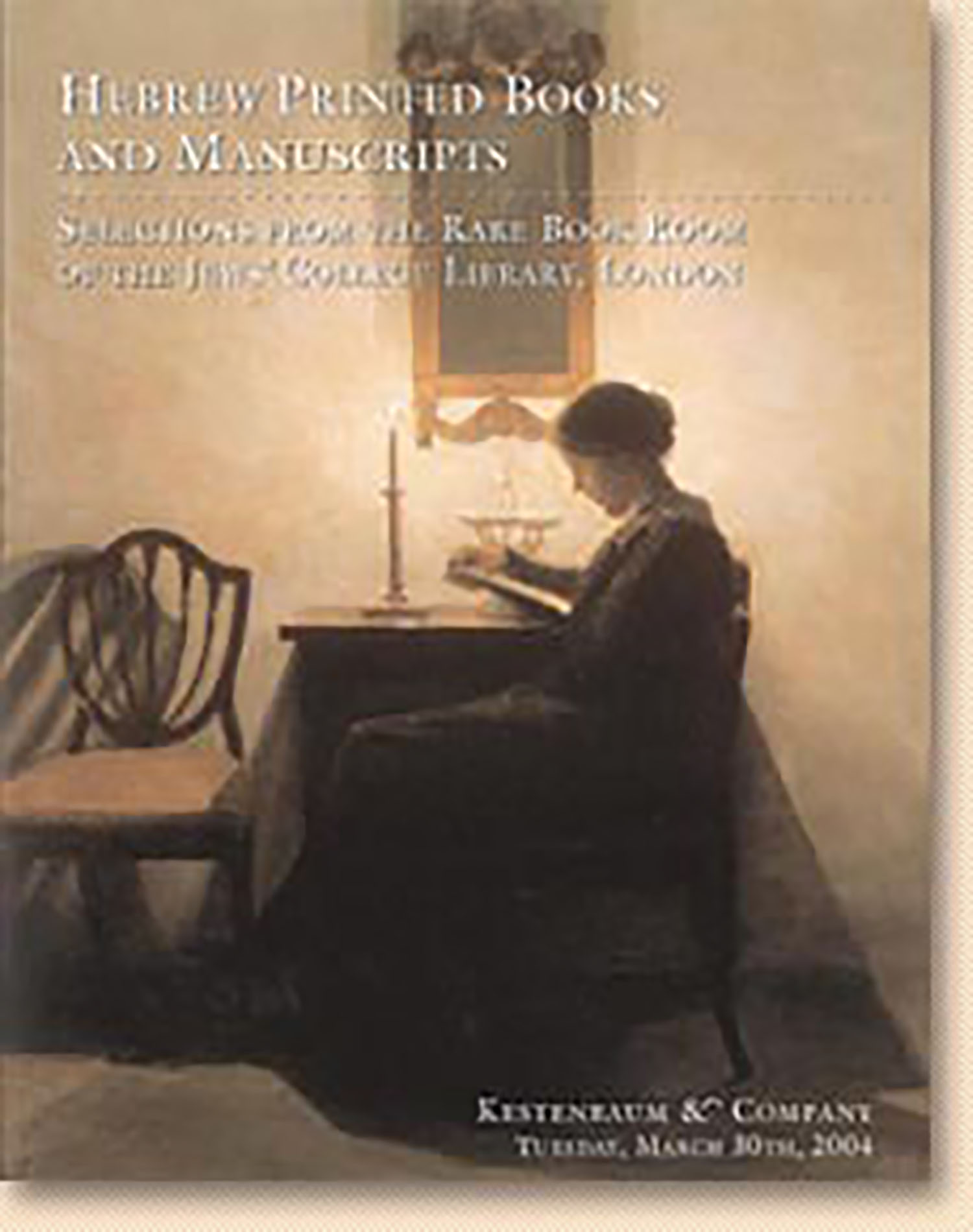Judeo-German). Followed by the “To’aliyoth” (moral lessons to be gleaned from the various books of the Bible) of Rabbi Levi ben Gershom (RaLBa”G or Gersonides) on Joshua, Judges and Samuel

AUCTION 23 |
Tuesday, March 30th,
2004 at 1:00
Hebrew Printed Books & Manuscripts from The Rare Book Room of the Jews College Library, London The Third Portion
Lot 62
(BIBLE,
Judeo-German). Followed by the “To’aliyoth” (moral lessons to be gleaned from the various books of the Bible) of Rabbi Levi ben Gershom (RaLBa”G or Gersonides) on Joshua, Judges and Samuel
Amsterdam: Uri Phoebus ben Aaron Halevi 1676-1679
Est: $800 - $1,200
PRICE REALIZED $2,200
The First Translation of The old Testament into Judeo-German.
The first endeavor of its kind, a complete translation of the Bible into Judeo-German, carries with it a rather bitter commercial background: Joseph Athias and his son Immanuel, the most highly regarded Hebrew printers in Amsterdam, faced, from the outset of their enterprise, strong competition from the energetic and skilled printing house of Uri Phoebus Halevi. This rivalry reached its zenith when in 1678 Uri Phoebus issued the first Bible translation (accomplished by Yekuthiel b. Isaac Blitz) into Judeo-German (Fuks, Amsterdam 336); whereupon Athias employed Joseph ben Alexander Witzenhausen to produce a rival, and ultimately more notable, edition. Although both printers set about their undertakings with equal altruism, the resulting litigation each used to rid himself of his rival, caused the financial ruin of them both. Our translation, the first (though considered the inferior of the two) carries the privilege of the King of Poland for twenty years and the privilege of the Council of Four Lands (Vaad Arba Aratzoth) for ten years. See: Fuks, Hebrew Typography in the Northern Netherlands (1987), pp. 237-40 and 296-98; A.K. Offenberg, Bibliotheca Rosenthaliana-Treasures of Jewish Booklore (1994), pp. 46-7
